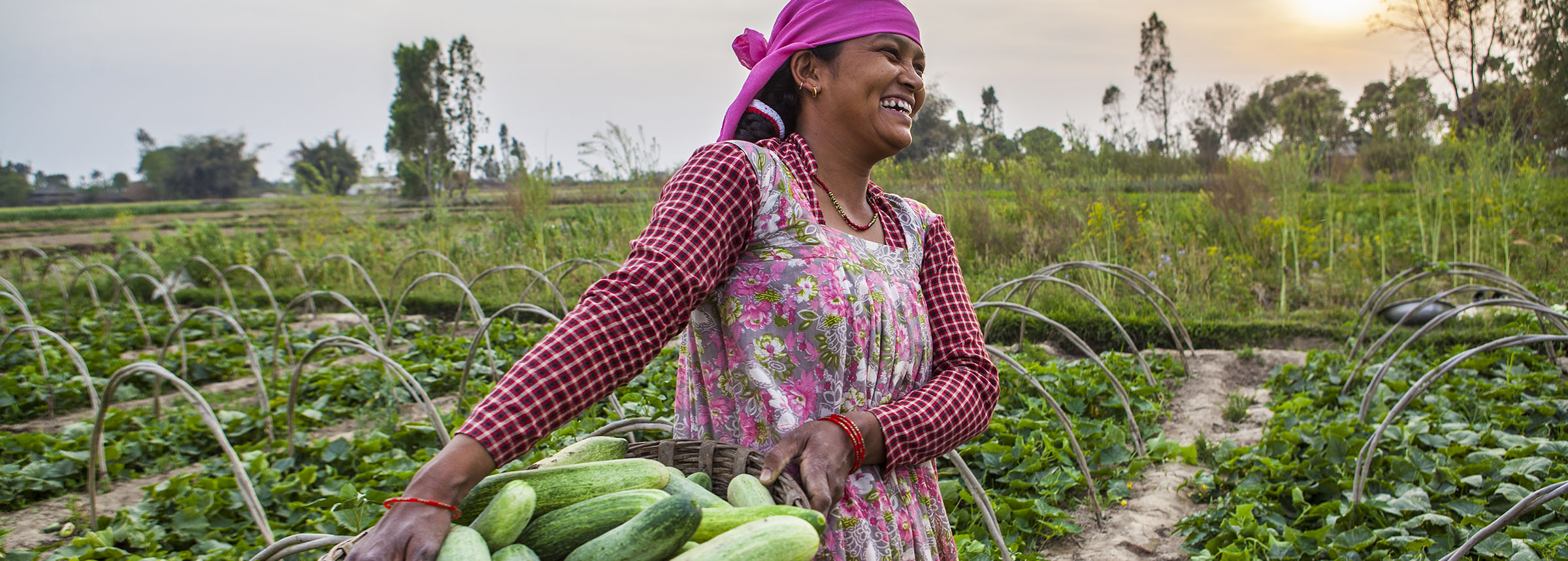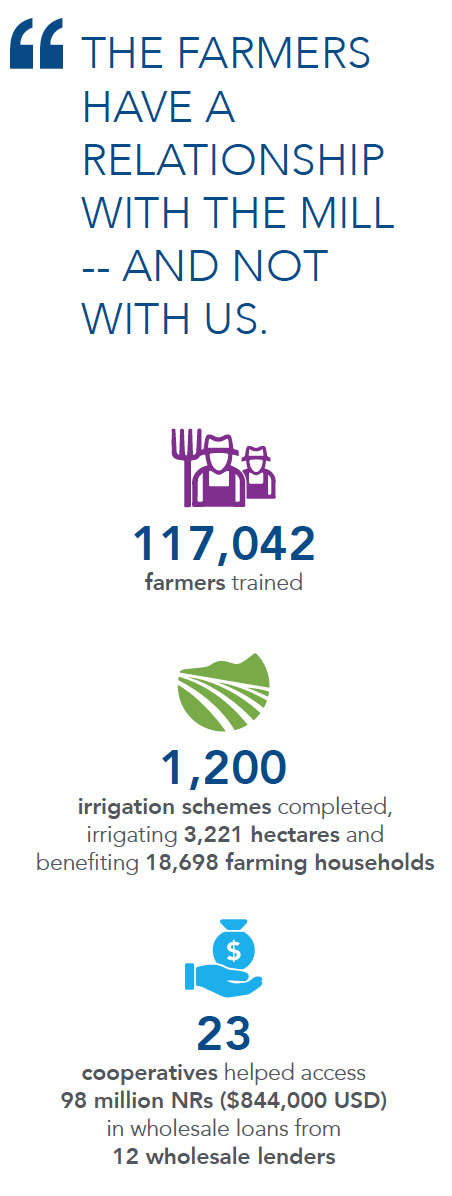
In Asia, A Project that Puts Market Systems First
 PROJECT NAME: Feed the Future KISAN
PROJECT NAME: Feed the Future KISAN
SYNOPSIS: Improve food security and increase rural incomes in Nepal through agriculture, nutrition and sanitation activities
YEARS ACTIVE: 2013-2017
FUNDER: USAID
In the flat fields of Nepal’s southern Terai plains, small farmers like Ramawati Maurya have for generations grown only coarse rice. It expands when cooked, so less of it can fill a hungry stomach — not insignificant in this poor, rural area — yet Maurya is one of many farmers who has begun growing medium fine rice instead. The reason: She is one of 1,000 small farmers in her area working closely with the nearby Dev Bhar Rice Mill.
Dev Bhar is one of several rice mills in the area that has shifted to processing finer varieties of rice, responding to changed market demand. It’s a market shift that Winrock’s Feed the Future Knowledge-based Integrated Sustainable Agriculture and Nutrition project (KISAN), funded by USAID, has been all over. KISAN supplied Dev Bhar with a small grant to modernize its equipment and has shown the mill how to work closely with farmers to help them better manage their crops and increase yields. The mill almost doubled its processing capacity in two years and also drastically reduced the amount of fine rice it has to import from India — a significant cost savings.
KISAN builds not just profits, but linkages as well. “Typically, the way things have worked in Nepal is that farmers interact with millers through one or many middle men,” says program officer Jeff Apigian. “There has been very little direct connection between millers and processors and farmers.” That was certainly the case for Maurya, who says she had never even heard of Dev Bhar before. But thanks to KISAN, Dev Bhar’s new ongoing relationship with a large farmers group consistently supplies the mill with fine rice to process and sell. These ties between local farmers and Dev Bhar are all part of KISAN’s value chain approach to build mutually beneficial relationships among a wide array of actors in Nepal’s agriculture sector — bonds driven by market demands that can be expected to endure long after KISAN is finished.
The relationship with Dev Bhar is successful and sustainable because it’s not just a transaction, but a genuine partnership. Dev Bhar’s commitment to the success of local farmers goes beyond providing technical expertise, providing farmers with a guaranteed market for their crops and vital financial resources. “The mill gives us small loans so that we can buy seed and fertilizer on time,” says Maurya.
For Maurya, a mother of six, the arrangement has increased her income enough to make important investments in her family’s future. “This is very profitable for us,” she says. “I have used the money saved from the sales of grains last year to buy another plot to cultivate more rice, and also to provide a better education for my children at a private school.”
The KISAN II project is building on KISAN’s success. “In KISAN II we are taking ourselves out of the equation even more,” says KISAN Chief of Party Phil Broughton. “We work with the mill while it works with the farmers. That way, when the project ends, the farmers have a relationship with the mill — and not with us.”
